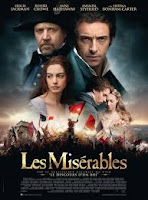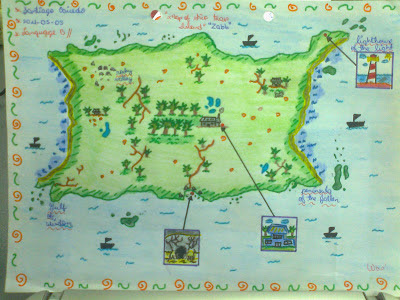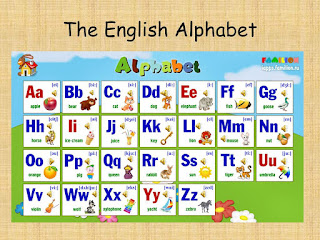Les Misérables: the 2012 movie

Whoever said musicals are boring has not seen Les Misérables yet.
This is a film that intended to be many things: a musical like no other, a metaphor about the human condition, a portrayal of the French society of that time, and also another translation of a literary masterpiece into a motion picture.
Was it successful? I would say yes, it definitely was. To see Hugh Jackman in a "serious" role is nothing new but to see him and listening to him singing is another thing entirely. Jackman plays the role of some Jean Valjean, a man who was convicted for stealing a piece of bread because he wanted to feed his nephew. After years in prison he is released but finds it is extremely hard to readjust to the ways of the world until the day he steals from a generous priest who previously agreed to shelter him. When the Police comes with Valjean, a prisoner again, the priest denies any accusation and demands Valjean to be set free. From that moment on Valjean decides to change his life and his decision would affect the lives of many others in particular that of Fantine (Anne Hathaway), a single mother, her daughter Cossette, and his relenteless and merciless nemesis, officer Javert (Russell Crowe).
If you have read the book you will find that the two experiences are tremendously different. The book offers a lot of details about the characters, about Paris and even the conflicts that shook the post-revolutionary France. The movie cannot comprise all that and that is why the action "jumps" in time so often. Still none of that is a problem and the movie can easily be apprerciated, and enjoyed, as a unique work with its own merits and a few flaws (some things we never get to see). If anything it would seems that Hathaway is a seasoned singer (and she is). She also delivers what is the most important scene of the musical which is when she sings I Dream a Dream. The energy and the intensity of that scene are simply overwhelming.
This movie is also about the lives of those inhabiting in the time of a convoluted country, the post-Bonaparte France, a place full of poverty and injustice that was also away from being the land of Liberty and Equality it was supposed to be.
The characters depicted were quite human and thus were not that different from those who live today, but generations pass and we tend to close our eyes before our own imperfections, or atleast that seems to be one of the many messages Victor Hugo, the author of Les Misérables, hid in his on masterpiece.
The characters depicted were quite human and thus were not that different from those who live today, but generations pass and we tend to close our eyes before our own imperfections, or atleast that seems to be one of the many messages Victor Hugo, the author of Les Misérables, hid in his on masterpiece.
Five stars out of five for this one.



Comments